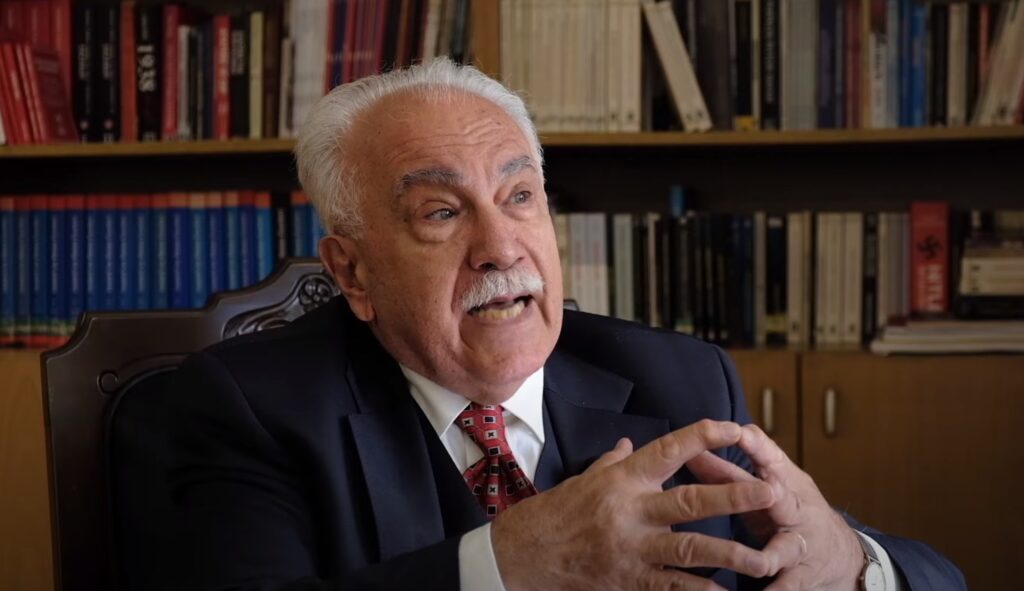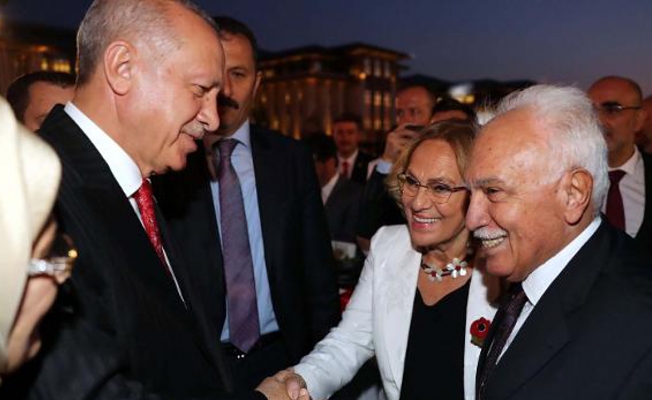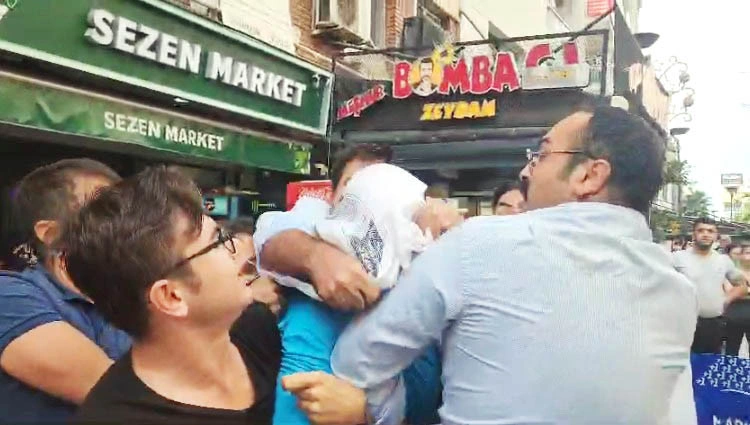Abdullah Bozkurt/Stockholm
The September attack on two US Marines on shore leave in the Turkish port city of Izmir was orchestrated by a neo-nationalist militant group and sanctioned by the government of President Recep Tayyip Erdogan, according to information obtained by Nordic Monitor. The attack was part of a covert influence operation aimed at the domestic audience as well as a warning to the United States.
Turkish intelligence agencies were aware of the militant group’s preparations but allowed the attack to proceed without intervening. The government gave its tacit approval to further Erdogan’s political objectives. The quick release of the attackers from detention strongly suggests the attack was quietly sanctioned by the state, fitting a longstanding pattern of growing anti-American and anti-Western rhetoric under Erdogan’s regime.
Members of the militant group, emboldened by the government’s protection, staged a demonstration on September 7, just five days after the attack, where they threatened to send American soldiers back to the US in coffins. This demonstration took place at the same location as the earlier attack.
The Marines, stationed aboard the USS Wasp, a navy assault ship docked in Turkey, were attacked on September 2 by 15 members of the neo-nationalist Turkish Youth Union (Türkiye Gençlik Birliği, or TGB) and Pioneer Youth (Öncü Gençlik, ÖG), both affiliated with the pro-Iran Aydınlık network, led by Erdogan ally Doğu Perinçek.

Although 15 suspects were initially detained, only 10 were formally arrested, including the leaders of the TGB and ÖG. However, they were soon released pending the completion of the investigation, a scenario reminiscent of past incidents where no significant punishment was meted out. Perinçek’s youth organizations have a long history of attacking US troops without facing serious legal repercussions.
These groups have previously targeted US military personnel on multiple occasions, even infiltrating Turkey’s Incirlik Air Base in Adana, home to the US Air Force’s 39th Air Base Wing. The last attack before the September incident occurred in November 2021, when TGB militants assaulted a US sailor in Istanbul, putting a bag over his head. Despite the police detaining 17 suspects, none were formally charged or convicted.
Perinçek’s groups have been emboldened by their connections to Turkish intelligence, law enforcement and the judiciary. The Erdogan government has consistently shied away from pursuing legal action against them, viewing these attacks as politically advantageous. Turkish police, despite being aware of the groups’ plans, have not intervened to stop them, knowing that the militants enjoy protection from the state.

A striking example of this occurred in 2012, when TGB militants planned to assault US sailors from the USS Abraham Lincoln. Although the police initially detained the suspects, after Erdogan’s 2014 alliance with Perinçek, the case was overturned, and all suspects were acquitted. In a bizarre turn of events a police officer was even sentenced to eight months in prison for detaining the militants, a decision that underscored the power of the Perinçek faction within the Turkish judicial system.
These groups have not only targeted US soldiers but have also attacked NATO troops from other countries. In 2013 TGB militants assaulted German NATO soldiers, putting bags over their heads. Despite the seriousness of the attack, the perpetrators faced minimal consequences.
The Perinçek group’s influence extends far beyond these militant actions. Although their political party, the Homeland (Vatan) Party, garners little electoral support — securing only 0.1 percent of the national vote in the 2023 parliamentary elections — its real power lies in its connections within Turkish intelligence, the military and the police. The group’s members frequently appear in the national media, promoting anti-NATO and anti-US rhetoric while advocating closer ties with Iran, North Korea, Russia, Venezuela and Afghanistan.
With unwavering support from the Erdogan government, the Homeland Party and its youth branch, the TGB, continue to fan the flames of anti-American sentiment in Turkey. They have organized protests outside the US Embassy and consulates and staged demonstrations at Incirlik Air Base, demanding the removal of US troops from Turkish soil.
The attack on the US Marines in Izmir is not an isolated incident but part of a broader, state-backed influence operation designed to stoke anti-Western sentiment and further the political aims of Erdogan’s regime. The repeated lack of accountability for such attacks highlights the deep entrenchment of neo-nationalist groups in Turkish institutions, with Erdogan using these connections to bolster his domestic and foreign policy objectives.












